
With great power comes great responsibility. As General Qamar Javed Bajwa reaches the culmination of his prolonged tenure as Pakistan’s Chief of Army Staff (COAS), it is vital to analyse the trials that Pakistan’s next military head must tackle.
Whoever next warms the seats at Pakistan’s Army General Headquarters in Rawalpindi faces daunting challenges which his forerunners did not have to confront.
One of the foremost challenges facing the incoming Army Chief is to adopt a firm stance in securing Pakistan’s borders as the South Asian theater is more volatile than ever before. Pakistan’s army head must mitigate battle risks with nuclear-powered competitor India along its Eastern border. This means exhibiting a muscular posture towards India’s hawkish BJP ultra-nationalist government.
The Army Chief and his team will have to secure the Line of Control in a highly restive Kashmir as well as dealing with an increasingly belligerent Taliban regime which is removing the barbed-wire fence straddling the Durand Line (the border between Pakistan and Afghanistan) along the Western border. In counter-terrorism the new appointee will have to double down on Intelligence Based Operations (IBOs) and initiatives like Operation Radd-ul-Fasaad to clear tribal belts of militant sanctuaries especially to counter a dangerously resurgent Tehrik-e-Taliban Pakistan (a US-designated terrorist group) whose sleeper cells have awakened and are conducting terror in Pakistan by infiltrating through Afghanistan’s border. Eliminating TTP cells will be a foremost challenge for the arriving Army head. Restoring domestic security and quelling insurgencies in the Pashtun and Balochistan regions (often foreign sponsored) presents another challenging front.
Willingly or unwillingly, the new army head will play a pivotal role whether Islamabad pivots its foreign policy closer to either China or the US in the Great Power contest between Washington and Beijing that will define international relations over the coming years.
President Joe Biden of the US recently stated that “Pakistan is one of the most dangerous nations in the world” since the country has “nuclear weapons without any cohesion”. This will require urgent damage control. Here Pakistan’s forthcoming military chief will remain steadfast, keep encouraging transparent IAEA inspections (as Pakistan routinely does) and reassure the global community over the robust safeguards surrounding Pakistan’s nuclear command and control systems in a turbulent nuclear conflict-ridden South Asia.
The next challenge is rectifying a reputational crisis brought about in the wake of Prime Minister Imran Khan’s ouster from power through what, he alleges, was an engineered vote of no-confidence. The new army chief must focus on the military’s reputation through genuine national consensus building and stakeholder inclusion, including strengthening strayed civil-military relations. Healing the civil-military divide is no easy feat. Such reputational repair requires a multi-pronged stratagem from stealth PR campaigns to long-term social reintegration and succor of Pakistan’s 35 million flood victims which is — to a large extent — undertaken by Pakistan’s military. Pakistan is beset by political polarisation, disunity and economic malaise.
Then comes domestic discontent. Army officials are selected from a similar demographic of Imran Khan’s support base. Assertions to curtail political intervention by the military must be substantiated with solid evidence. However, Imran Khan’s not returning to office may disappoint the military cadres, requiring the senior most military corps to bridge such internal dissonance. The next COAS must delicately balance the wishes of his own officers with a veritable exit of the army from politics and assure ‘neutrality’ — much easier said than done.
Another challenge: General Bajwa tremendously widened his job responsibilities and those of the military. When Saudi Arabia, the US, China or the EU need something, their de facto port of call is the COAS. This was a perennial challenge. To genuinely extricate itself from day to day politics the new COAS must avoid dejecting Pakistan’s elected representatives.
In light of the lackluster performance of certain elected representatives, any COAS can feel the urge and compulsion to carry on encroaching into the political arena. How the incoming COAS circumvents this and exercises strict restraint from forays into government politics will meaningfully repair civil-military relations and course-correct Pakistan toward financial, diplomatic, political and economic stability.
Pakistan’s future military supremo, like all the rest, will be (theoretically) in service of the incumbent government. It is paramount that the new army head will prioritise the interests of the state and not those of the government as those interests are politically charged and must no longer be the business of the army to politically interfere.
Prime Minister Shehbaz Sharif is well-advised to swiftly choose the most senior General to become COAS; that way no one can blame him for partisanship or favouritism.
Irrespective of who the next COAS is, they have an uphill struggle awaiting them, which is long and winding.
Published in The Express Tribune, November 22nd, 2022.
Like Opinion & Editorial on Facebook, follow @ETOpEd on Twitter to receive all updates on all our daily pieces.















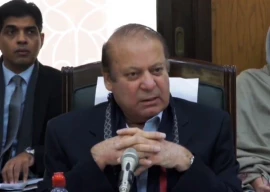
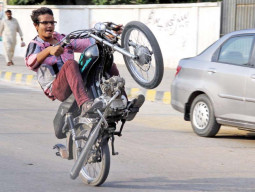


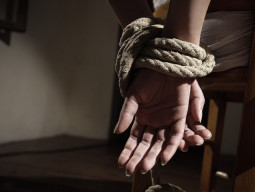












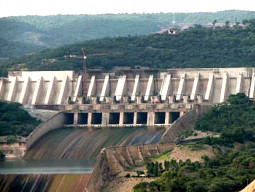
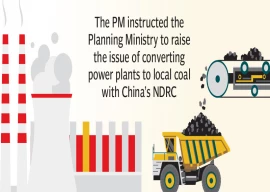








COMMENTS
Comments are moderated and generally will be posted if they are on-topic and not abusive.
For more information, please see our Comments FAQ